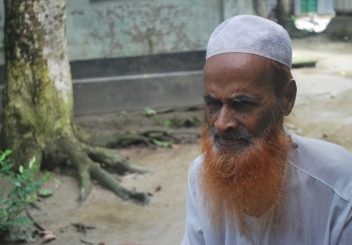 In the last weeks, I’ve received great insight into older people’s knowledge of policies and legislation, having spoken to them about their views of how much governments have done to ensure that the Madrid Plan is implemented.
In the last weeks, I’ve received great insight into older people’s knowledge of policies and legislation, having spoken to them about their views of how much governments have done to ensure that the Madrid Plan is implemented.
As we prepare to review the plan, older people are discussing how their lives have changed over the last ten years and how, if at all, this is due to changes in government policies or society’s attitudes towards them.
Neglect by families and communities
One issue which particularly struck me is the neglect of older people by their own families and communities. Even though the focus of this review is government actions, this issue often comes up.
An older man, 84, from Bangladesh told me: “Nobody lives with me, even just to help me to get a glass of water.” Similarly sad is the story of a Bengali woman who suffers from diabetes and is not receiving any support from her family: “Now I only wish to die, but I am scared and worried about my disabled son.”
Many of the people we talked to said the reason they are neglected by the people they cared for as children is that they are not as strong as they used to be and cannot work.
An older man from Sri Lanka said: “Now, I am 70 years old and I don’t have the physical strength to do heavy work, and I don’t have financial strength either. This is why people like me are not respected anymore. There is nobody to share my sorrows and loneliness with. No one to hear my voice (…) not even my children.”
Action is urgently required
Of course, we have to be careful about generalising these individual experiences. However, even though not all older people experience such neglect, these few cases are enough to prove that action on ageing as described in the Madrid Plan is urgently required.
In these discussions, older people made a lot of suggestions of how to improve their situations. To really tackle these problems, governments, the private sector, civil society and every individual need to play their part.
Social protection programmes as well as improved health services will equally help to ensure that older people are respected and valued in their societies and by their own families. Campaigns which highlight positive, but at the same time realistic, images of ageing are also important
Let’s hope for a future in which this statement by an older Cambodian becomes reality for every older person around the world: “We can pass on wisdom and experiences to our children and grandchildren. They understand that we have wisdom and can help them.”
